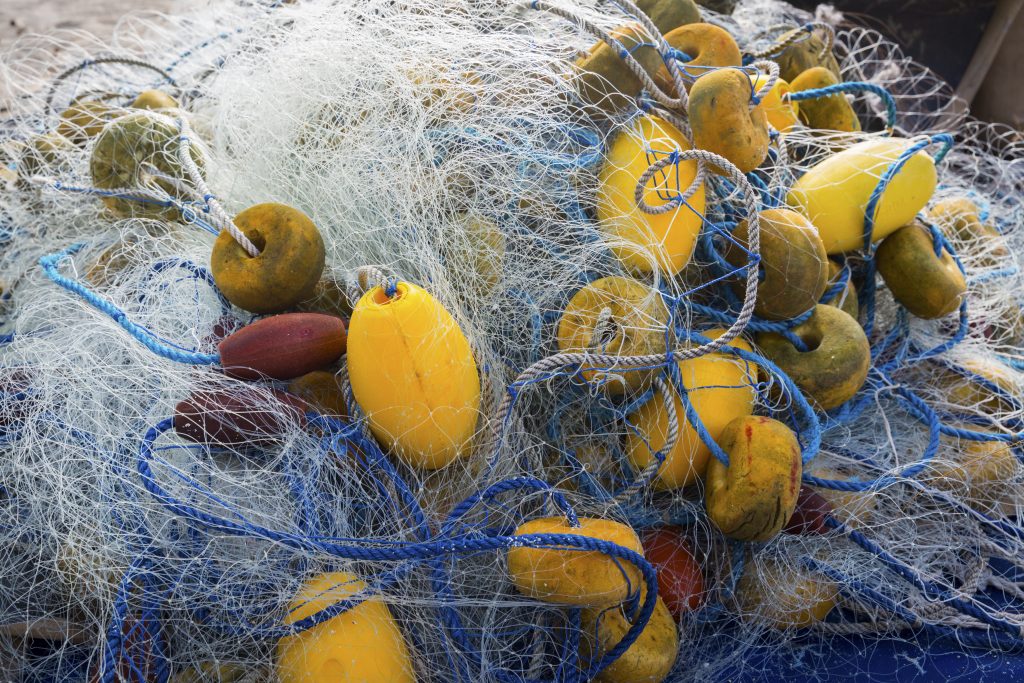Effective MPA Management
Principle 1: Effective MPA Management
Effective management, including providing community benefits and reducing threats, is the core of resilience-based strategies.
Effective Management refers to reducing threats in a MPA, specifically, the daily activities implemented by managers as well as larger, community-wide efforts to address problems such as local pollution, poorly planned coastal development, and destructive fishing practices.
Coastal habitats and their values and services are vulnerable to destructive activities. Destructive activities decrease the health and productivity of the ecosystem, including the species living within it, thus reducing ecosystem resilience.

Fishing nets in the Seychelles. Photo © Jason Houston
DESIGN RECOMMENDATIONS
Ensure no-take areas are in place for the long-term (20-40 years), preferably permanently
- Some benefits can be realized in the shorter term (1-5 years) especially if fishing pressure has not been heavy, but 20-40 years protection allows heavily fished species and the longer-lived targeted predator species (e.g., sharks and other coral reef predators) the opportunity to grow to maturity and thereby contribute more to stock recruitment and regeneration. 20-40 years protection (or permanent protection) allows these fishery and ecosystem benefits to be sustained. ref
- In heavily fished areas, short term protection may provide benefits for some species, but such benefits will be lost when areas are opened to fishing unless well managed. ref
Minimize and reduce stressors
- Prohibit destructive activities throughout the management area. ref
- Reduce stressors such as overfishing, land-based pollution, and recreational impacts that may affect coral community health. This will provide reefs with a greater chance to survive major disturbances, such as bleaching events. ref
- Implement direct management interventions and enhance recovery of coral communities that have been impacted (e.g., invasive algae removal, herbivore enhancement, and fisheries management).
Embed MPAs in broader management frameworks
- A network of highly protected areas nested within a broader management framework could include a vast, multiple-use reserve, managed for sustainable fisheries, climate change, and biodiversity protection. ref
- An ideal MPA network would be integrated with coastal management regimes to enable effective control of threats originating outside of the MPA boundary.
See Measuring Management Effectiveness for resources specific to measuring the effectiveness of MPAs, Adaptive Management to improve the success of management practices and policies, and Communication to better achieve management goals and objectives.
